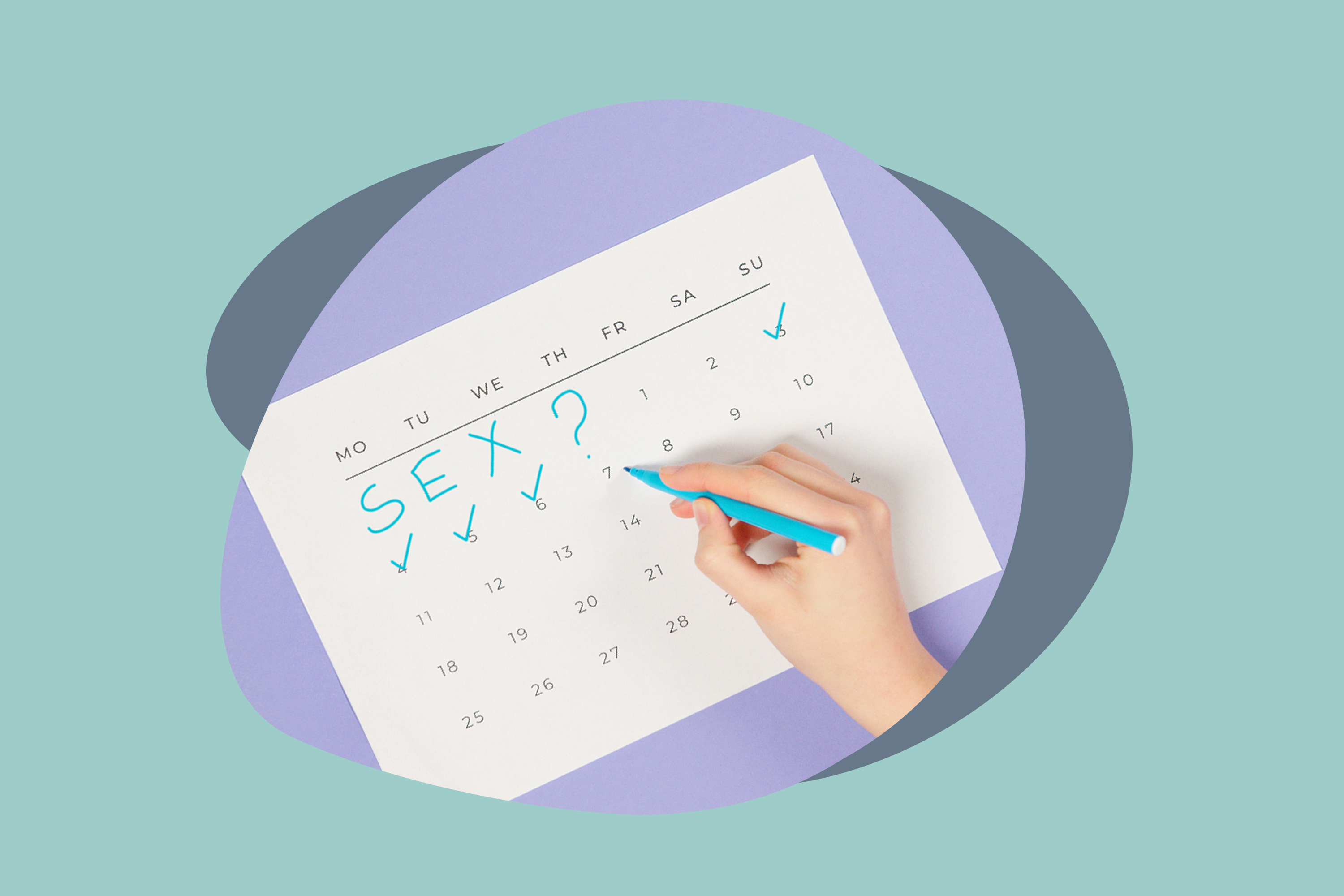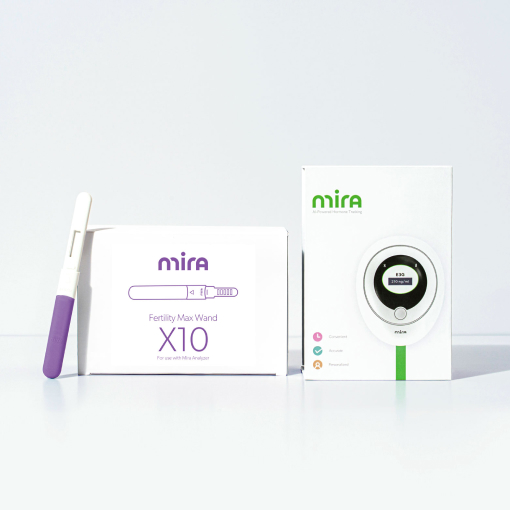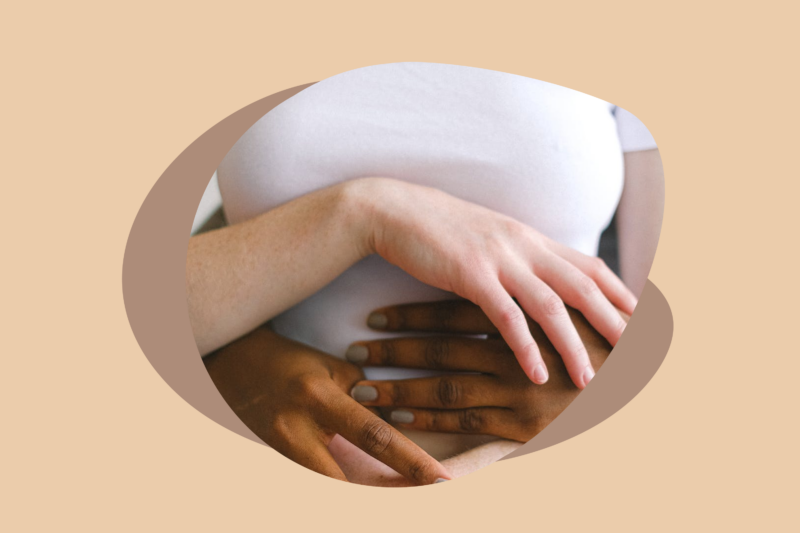When and How Often Should You Have Sex to Get Pregnant?

We all know that you have to have sex in order to get pregnant. However, the timing of when that sex occurs plays a huge role in how quickly you can conceive.
In this article, we’ll cover everything you need to know about when (and how often) to have sex in order to maximize your chances of getting pregnant. We’ll also cover a few strategies for how to track your most fertile days.
How often should you have sex to get pregnant?
Doctors often recommend that couples looking to plan a pregnancy should have sex at least once every 2 to 3 days. However, to maximize your chances of getting pregnant even further, it’s recommended to have sex at least every other day or daily during the fertile window.
The importance of ovulation and your fertile window
The vast majority of pregnancies occur around the time of ovulation, which is known as the “fertile window”. During this time, the body prepares itself for potential pregnancy by secreting the hormones estrogen (E2) and luteinizing hormone (LH). Together, these hormones help the body release an egg into the fallopian tubes so that it can be fertilized by a sperm. Once released, the egg can only survive for up to 24 hours.
This entire process lasts around six days and it usually occurs midway through the menstrual cycle. Because everyone’s cycle is different, the exact timings can vary among individuals.
How to track ovulation
Tracking ovulation is key to conceiving as efficiently as possible. By knowing when your fertile window is likely to occur, you can plan sex with your partner at the most optimum time for getting pregnant. Luckily, there are reliable ways to track ovulation from the comfort of your home – here are a few of the most common methods.
Use an ovulation test kit or app
One of the most reliable ways to track ovulation is by testing your hormone levels with the help of an ovulation test kit (often referred to as ovulation predictor kits) or a fertility app.
Ovulation predictor kits (OPKs) are designed to help you identify your LH surge which occurs approximately 24-36 hours before ovulation. OPKs are very similar to at-home pregnancy tests – all you have to do is take a urine sample, test it, and wait for your results. Your results will then be displayed as either positive or negative, with a positive result indicating that your LH levels are considered high enough to be surging and a negative result indicating that they are not.
Even though OPKs are considered 99% accurate, they can still be unreliable in certain cases. This is because their threshold for testing is based on worldwide averages, meaning they may not work properly for individuals with polycystic ovary syndrome (PCOS), luteinized unruptured follicle syndrome (LUFS), or for those taking certain fertility medications.
For more advanced ovulation testing and tracking, we recommend exploring at-home hormone testing solutions like the Mira App and Analyzer.

Take your basal body temperature
Progesterone levels rise after ovulation, and this is known to cause a slight increase in basal body temperature (BBT). Doctors estimate that you are at peak fertility approximately 2 to 3 days prior to this rise in BBT, and so tracking BBT each cycle can be a great tool for predicting your most fertile days in the following cycle.
To follow the BBT method for tracking ovulation, you will need to first purchase a BBT thermometer and then make sure to take your temperature at the same time each day. You should then record your temperature in a diary or on a fertility tracking app.
It’s important to note that it can take several cycles of tracking before you are able to estimate your fertile window. However, even with meticulous tracking, the BBT method is only estimated to be about 76 to 88% accurate.
Tracking cervical mucus
Another biological marker that can be tracked in order to anticipate ovulation is cervical mucus. Outside of your fertile window, cervical mucus is typically creamy, white, and/or yellowish in color. However, in the days leading up to ovulation, cervical mucus becomes clearer and slipperier – very similar to the look and feel of raw egg whites.
By tracking and taking note of your cervical mucus each day, you can better understand the natural signs of fertility and plan sex with your partner accordingly. Similar to tracking BBT, cervical mucus must be tracked and recorded daily in order for this method to be effective.
For more information on how to track your cervical mucus and methods to try, check out our article Cervical Mucus During Ovulation: Look, Feel, Consistency.
Saliva test
Another possible way to track and detect ovulation is through saliva testing. This can be done with the help of at-home saliva test kits – here’s how they work.
As estrogen increases ahead of ovulation, it can cause your saliva to form a fern-shaped pattern when it dries. To look for this pattern, you can use the small microscope provided in a saliva test kit. All you have to do is take a saliva sample, let it dry, and then examine its pattern. If you notice a full or partial fern-shaped pattern, this is a sign that you are nearing ovulation.
The main downside of this test is that the fern-shaped pattern does not always form in everyone – even when they are ovulating. Not only that, but your saliva (and results) can be impacted by daily activities like eating, drinking, and brushing your teeth.
When to have sex before, during, and after ovulation
Generally speaking, you should aim to have sex with your partner at least once every other day during your 6-day fertile window. More specifically, your chances of conceiving will be at their highest on the following days:
- 2 days before ovulation
- 1 day before ovulation
- The day of ovulation
- 1 day after ovulation
Having sex on each of these days may not be realistic for some couples – and that’s okay! Your chances of conceiving will still be very high even if you only have sex every other day during this time. This is backed by research that suggests daily sex during the fertile window results in a 25% chance of conception, while sex every other day results in a 22% chance of conception.
How often should you have sex during ovulation?
The entire process of ovulation occurs over the course of 24 hours. This means that you should aim to have sex at least once on this day.
How long will it take to conceive once you start trying?
The National Health Service (NHS) in England estimates that approximately 84 out of every 100 couples will conceive within one year if they have unprotected sex every 2 to 3 days throughout each cycle.
However, this figure varies depending on age. In cases where a woman is between the ages of 19 to 26, there is a 92% chance of conception after 1 year and a 98% chance after 2 years. These chances drop to 82% within 1 year and 90% after 2 years in women aged 35 to 39.
Doctors often recommend seeking advice from a fertility specialist in the following scenarios:
- You are under the age of 35 and have not conceived within one year
- You are over the age of 35 and have not conceived within 6 months
Can you still conceive having sex outside of ovulation?
Yes! Although it is rare, it is still technically possible to conceive outside of ovulation. This is especially true in cases where your cycle is irregular or on the short side. It’s also common in individuals who typically have longer periods.
For more information, check out our article Is It Possible to Get Pregnant on Your Period?
Sex frequency and timing FAQ
Does having sex multiple times a day increase chance of conception?
Not necessarily. Whilst having sex multiple times a day won’t hurt your chances of conceiving, there is no research that suggests it will increase your chances of conception either.
Can too much sex lessen my chance of conception?
When it comes to planning a pregnancy, there is no such thing as “too much sex”. In the past, doctors used to believe that too much sex could potentially decrease your partner’s sperm count. However, this myth is not backed by research, and you should not let it stop you from having sex with your partner if you feel like it.
What time of day should you have TTC sex?
There is no specific time of day where your chances of conception are the highest. The only thing that matters is that you are having sex during your fertile window. Some doctors believe that having sex in the morning could be beneficial, however, this is only true for a small subset of cases and scenarios.
How long does it take to get pregnant after sex?
Getting pregnant does not immediately happen after you have sex. This is because it can take a few days for your partner’s sperm to reach your egg and fertilize it. The fertilized egg must then travel through the fallopian tubes towards the uterus, where it must undergo the implantation process. You are considered officially pregnant once implantation occurs.
All in all, this entire process can take around 10 days.
Recommended for you
Navigate your fertility with peace of mind
Mira’s Editorial Process
All content produced by Mira meets stringent editorial standards, ensuring excellence and accuracy in language and medical precision. Every piece undergoes thorough fact-checking and review by qualified professionals. Check out our full editorial process to learn more.














